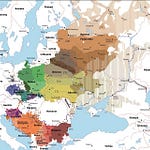On this episode of Unsupervised Learning Razib talks to returning guest Claire Lehmann. Lehmann has an undergraduate degrees in psychology and English from the University of Adelaide. She was enrolled in a graduate program in psychology, but left it after becoming disillusioned with moral relativism, she went on to found the online magazine Quillette to reflect a more traditionally pro-reason and pro-evidence-based worldview. Within three years Lehmann was profiled in 2018 in The New York Times as a major figure within the nascent “intellectual dark web.”
Razib and Claire discuss the evolution and current state of Quillette, a publication founded in 2015 to counter anti-enlightenment thinking, and later a platform for many thinkers associated with the intellectual dark web. Initially anti-left and anti-post-modernist, it later became known for its stance against cancel culture and woke ideologies, albeit without ever explicitly aligning with the American right. Lehmann clarifies her publication’s classically liberal stance. They also touch on the evolution and disintegration of the intellectual dark web, the corrosive impact of woke culture on academia over the last decade, and the likely future role of AI in disrupting traditional education.
Lehmann also discusses the changing landscape of social media and public discourse, particularly the impact of Elon Musk's interventions at Twitter over the last few years. They also explore the "woke right" debate, alluding to the authoritarian tendencies emerging among ascendant conservatives, citing discussions of the topic by former Quillette contributor and editor Colin Wright and journalist Jesse Singal. Razib asks about the future of Quillette, and Lehmann talks about its new focus on long-form articles on culture, science and the arts, and addresses the magazine's pro-Israel stance, which has polarized some American readers that don’t understand why an Australia-based publication should take a strong pro-Zionist stance.














